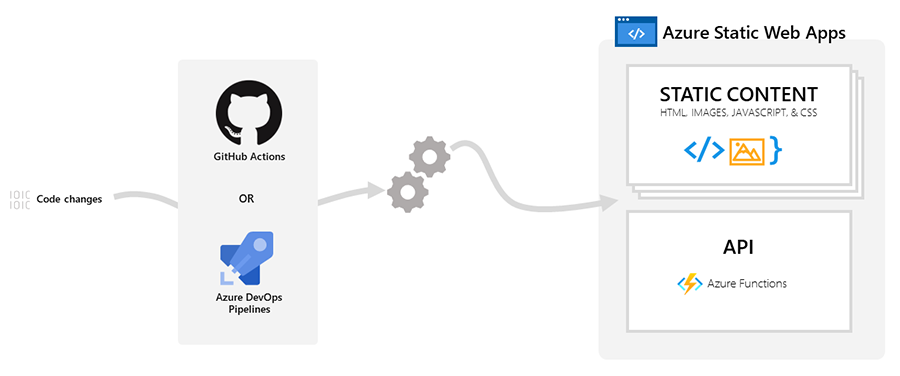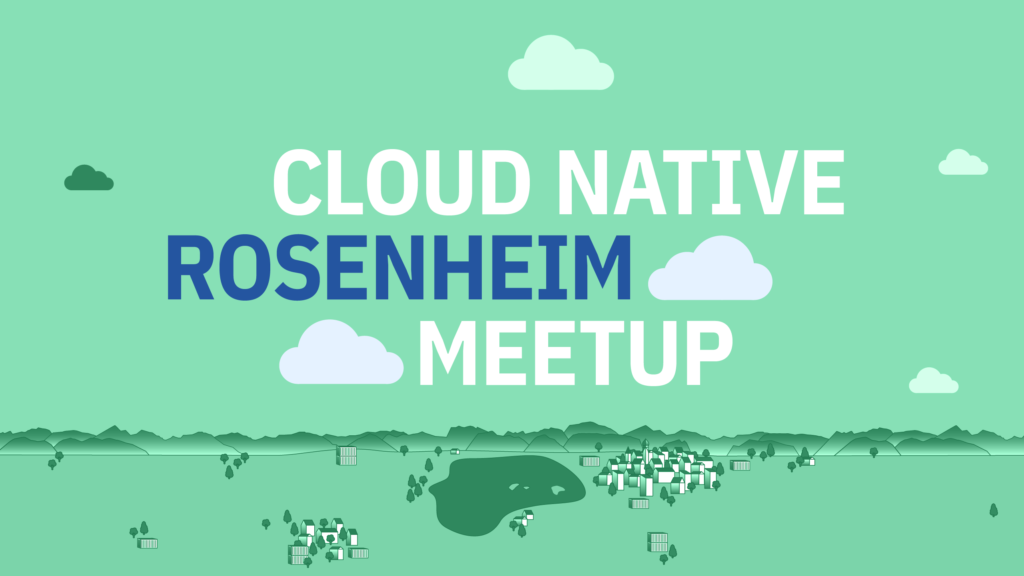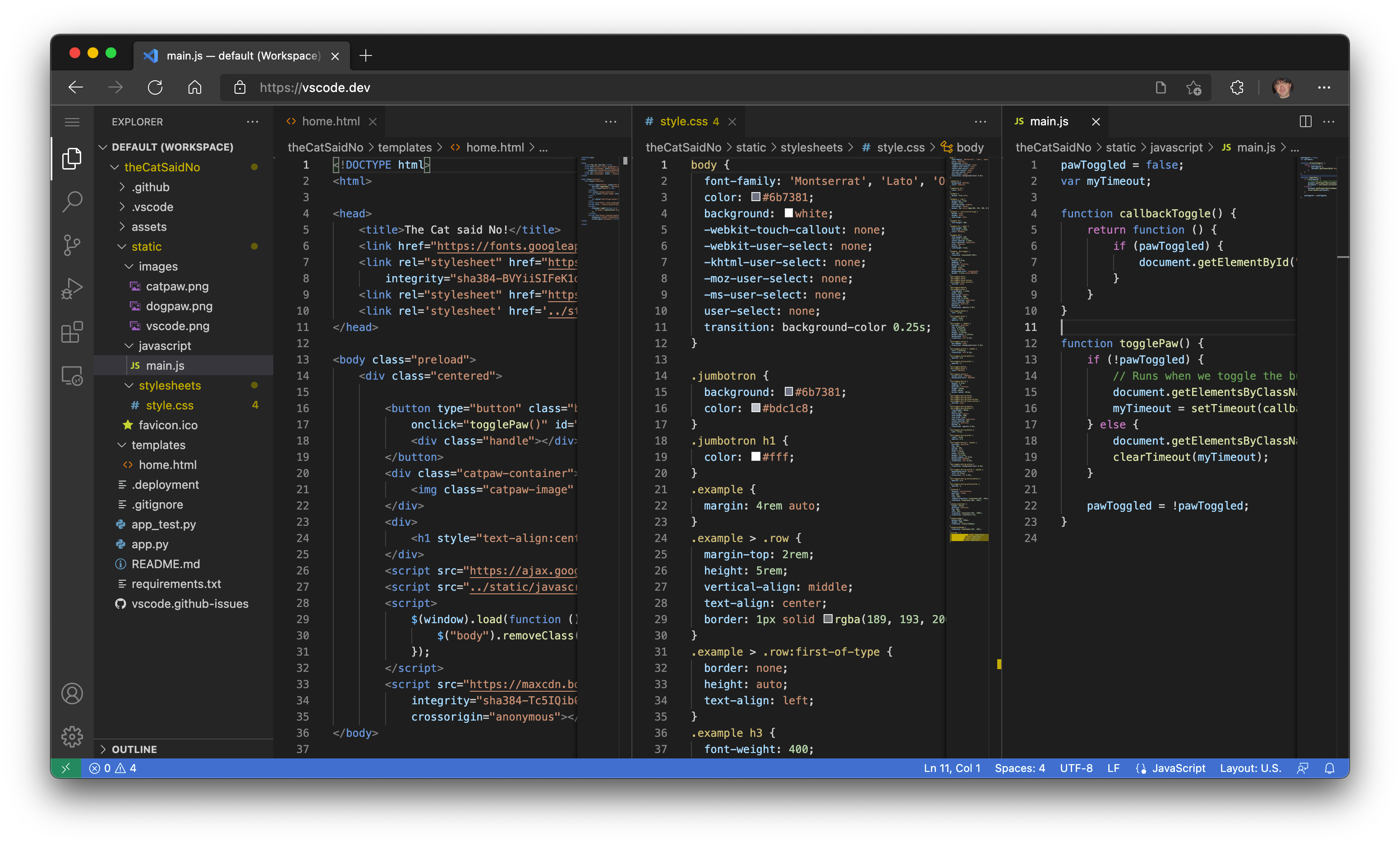Monthly Azure news October 2021
In October’s issue of Monthly Azure News read about some updates from the Microsoft, Kubernetes and Visual Code Studio universes. We hope you will enjoy the read.
Contents
- Object replication in public preview for Premium Block Blob Storage
- General availability: Azure Monitor container insights portal experience update
- Introducing experimental Open Telemetry support in the Azure SDK for. NET
- Generally available: Service Tag Discovery API
- Public preview: AKS out of tree cloud provider controller manager
- Public preview: AKS support for Kubernetes 1.22
- Public preview: AKS support for WebAssembly System Interface (WASI) workloads
- Public preview: Customize Azure Static Web Apps authentication with a serverless function
- Public preview: IPv6 for Kubenet
- Public preview: HTTPS proxy configuration support
- Public preview: Visual Studio Code for the Web
- Extended regional availability for Private Link NSG Support
- GitHub’s Focus on Security
Object replication in public preview for Premium Block Blob Storage
With object replication, you can copy premium blocks including contents, associated versions, and metadata from one storage account to another destination. This happens asynchronously and across regions. It is possible to configure your own rules for the copy procedure. Keep in mind that blob versioning must be enabled. By using this, costs can be optimized by working with archive tier and lifecycle policies. In addition, latency is minimized and data distribution optimized by utilizing data analysis in just one region and replicating only the results. In the graphic below you see the demo case where blocks from containers are replicated from one storage account to two different other accounts in separate regions. Please refer to Object Replication documentation for more details.

General availability: Azure Monitor container insights portal experience update
The new container insights preview offers the option to create predefined metric alert rules for AKS and Azure Arc-enabled Kubernetes clusters. Check if your region is supported for this feature here: Link. Also, it is necessary to have the minimum required agent version. The version and an overview of the alerts can be found here link.
Introducing experimental OpenTelemetry support in the Azure SDK for .NET
OpenTelemetry is a project that supports the collection of telemetry data in distributed systems. Instead of using the libraries of your hosting and tracing solution, a unified library is provided. This brings a lot of advantages. First, it is not necessary to adapt your code if you have to change your hosting provider or tracing solution. Second, OpenTelemetry standardizes the collection, instrumentation, and export of distributed tracing data.
Also, many open-source projects like Jaeger and Prometheus are supported. Keep in mind that the support in the Azure SDK for .NET is currently experimental. If you want to switch to OpenTelemetry, only the exporter extension needs to be changed.
Generally available: Service Tag Discovery API
Via REST, PowerShell, and CLI it is now possible to call the API for a list of more than 60 service Tags including needed IP ranges for the configuration of on-premise firewalls. For more information check out this link.
Public preview: AKS out of tree cloud provider controller manager
Normally all cloud-specific changes on features must follow the standard Kubernetes release cycle (in-tree). With the cloud-provider-azure (GitHub) it is possible to adopt an “out-of-tree” release structure. To use this functionality via Azure CLI you must have the AKS-preview extension in the minimum version 0.5.5 as well as Kubernetes 1.20.x or more. To find more details please follow the link.
Public preview: AKS support for Kubernetes 1.22
For a detailed version overview visit the Kubernetes blog to see all enhancements and major topics of this release. Also, don’t miss to replay our last Cloud Native Rosenheim Meetup where we talked about Kubernetes 1.22 in detail:
Public preview: AKS support for WebAssembly System Interface (WASI) workloads
WebAssembly is an open standard that defines a portable binary-code format for executable programs. It is designed to help increase the speed of web applications. WASI is a modular system interface for WebAssembly. It is now possible to utilize such an interface with node pools for the Azure Kubernetes Services. The interface provides access to WebAssemblies. Details for this new release can be found here.
Public preview: Customize Azure Static Web Apps authentication with a serverless function
Azure Static Web Apps is a service that automatically builds rich web apps based on a code repository and deploys them to Azure. Static web apps are typically built using libraries and frameworks such as Angular, React, Svelte, Vue, or Blazor, which do not require server-side rendering. By creating a static web app, Azure is directly interacting with GitHub or Azure DevOps to view the Branch activity regarding Commits. You can now use a serverless function that is invoked whenever a user successfully logs into your static web app. With this, it is possible to use custom authentication (link) in addition to the already usable standards. For more information visit this site.

Public preview: IPv6 for Kubenet
Dual-stack IPv4/IPv6 support is now available and enables the allocation of both IPv4 and IPv6 addresses to Pods and Services. For more information visit the site; you can register via the following form.
Public preview: HTTPS proxy configuration support
The Azure Kubernetes service now has HTTPS proxy support. Nevertheless, there are some limitations to this feature to be aware of. The following lists mentions NOT supported aspects:
- Different proxy configurations per node pool
- Updating proxy settings post cluster creation
- User/Password authentication
- Custom CAs for API server communication
- Windows-based clusters
- Node pools using Virtual Machine Availability Sets (VMAS)
For more information on how to set the proxy configuration up visit the site.
Public preview: Visual Studio Code for the Web
Visual studio code can now be used as a web-based code editor with no installation required. As it is web-based only, it has no access to compute resources which limits its functionality. Nonetheless, it is possible to quickly open and work with code that is stored on your local machine or in GitHub or Azure Repos. VS Code for the web can be switched to a GitHub codespace. It also provides a seamless transition from the web view to the VS code on your computer where work can be continued. For more information visit the site.
Extended regional availability for Private Link NSG Support
Besides the introduced Private link for Resource management in the Azure portal in the last Azure news, the Private Link has a bigger regional availability for the Private Link NSG support. Now, it includes the following areas:
UsEast2Euap, UsCentralEuap, WestCentralUS, WestUS, WestUS2, EastUS, EastUS2, Asiaeast, Australiaeast, Japaneast, Canadacentral, Europenorth, Koreacentral, Brazilsouth, Uksouth, US South, US North, France Central
GitHub’s Focus on Security
The annual GitHub Universe conference focuses on the improvements of developers’ experience, security, and programming in the cloud. For instance, GitHub Copilot, an AI-powered auto-completion tool has been improved with many modifications to prevent the generation of vulnerable code. Also, Intellij IDEA and PyCharm IDEs from JetBrains as well as the neovim editor can now be used with GitHub Copilot. Furthermore, the Ruby programming language is now supported by CodeQL.

For GitHub Enterprise Cloud customers, it is now possible (beta) to create teams with custom access permission levels to repositories. GitHub also released the new GitHub issue project planning platform (beta), which reinvents how developers plan and track their work including features like project boards, dynamic tables, and data visualization.
GitHub CodeSpaces, the platform to develop code in the browser also received some improvements including access to GitHub Container Registry, access control of forwarding ports, and CLI support. The most important advantage of GitHub CodeSpaces is the ability to start coding and contributing to a project almost immediately.

